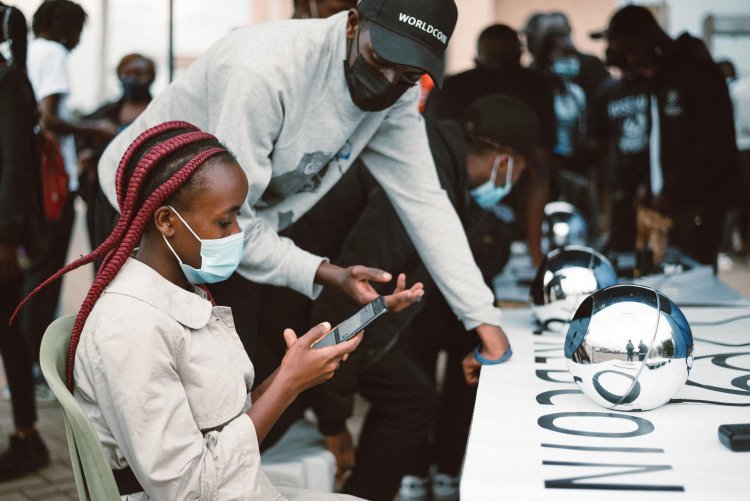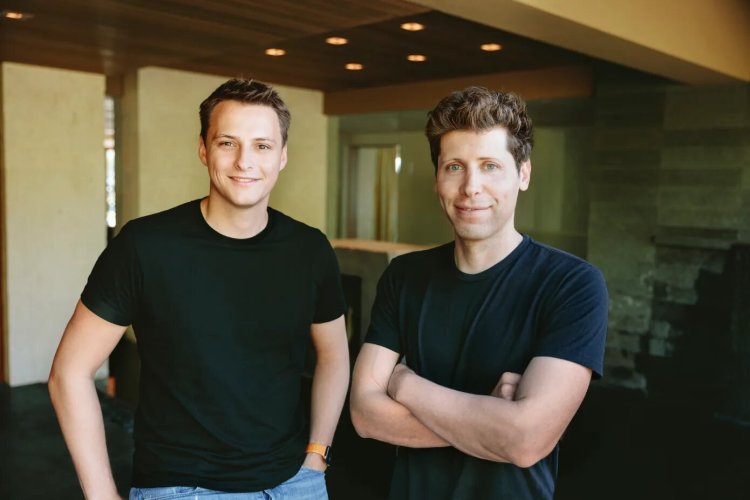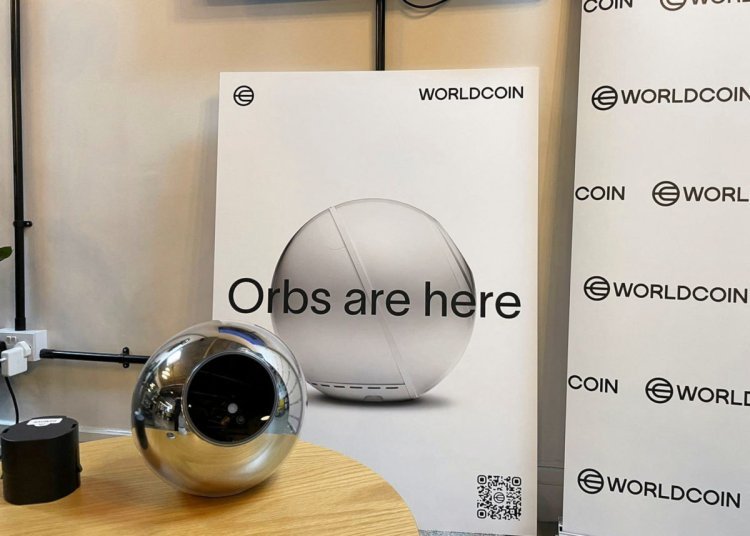Revealed: 635,000 Kenyans Registered For WorldCoin
Tools for Humanity, the subsidiary company of the controversial cryptocurrency project, further disclosed that it had so far invested Ksh700 million in Kenya.

WorldCoin, the cryptocurrency project by United States (US) generative Artificial Intelligence (AI) company OpenAI, has revealed that over 635,000 Kenyans registered for the technology which involves scanning eyeballs in exchange for a Ksh7,000 token.
The company revealed the numbers, however noting that slightly over 300,000 Kenyans were verified and 335,000 yet to be verified, with 5 million bitcoins having been disbursed to Kenyans.
Tools for Humanity, the subsidiary company of the controversial cryptocurrency project, further disclosed that it had so far invested Ksh700 million in Kenya.
WorldCoin co-founder and CEO Alex Blania, who appeared before the National Assembly Ad Hoc Committee investigating the operations of the company in Kenya on Wednesday, September 6, revealed that the funds were utilised on blockchain and cryptocurrency education as well as ICT awareness.

WorldCoin founders Sam Altman and Alex Blania. /TECHCRUNCH
Blania attributed the achievement of this to third-party agents and partners, adding that they had engagements with Strathmore University, the Blockchain Association of Kenya, the American Chamber of Commerce in the country, the Africa Blockchain Centre and New Hope Mukuru among others.
Blania further noted that the firm seeks to pump additional funds into the project even as it defended the integrity of its operations in Kenya.
"We wish to emphasise the WorldCoin project’s long-term commitment to Kenya. Our commitment to the people of Kenya is genuine, and we have at all times endeavoured to operate honestly, compliantly and above all transparently," he defended.
Sam Sadle, the Head of Government Relations and Public Policy at TFH, said the company has been scanning people’s irises in Nairobi and other Kenyan urban centres since 2021 when they were piloting the project.
“Prior to July 24th, we have been providing proof of humanness verification since 2021. We were located in more than 20 locations in the city, including malls; The Hub, Sarit Centre, Imaara Mall and elsewhere,” Sadle told the committee.
“We believe we reached a broad stratum of people across the country.”
Blania also refuted allegations that the Orb, used to scan people's iris during the registration process, caused health complications, adding that all safety procedures were followed during the making and certification of the technology.
"That is not possible. World Coin is produced in Germany- one of the strictest certification agencies in the World. All the certifications are listed in the document. The Orb cannot cause any health issues," he stated.
He was responding to revelations made by some Kenyans merely 24 hours ago that they began experiencing health issues after having their eyeballs scanned during the registration process, one of them revealing that he began experiencing eye problems that forced him to wear prescriptive glasses after he sought medical attention.
He questioned the occurrence coming after he had undergone the eye scan, adding that his eyes started becoming 'watery'.
"After the scan, my eyes started becoming watery. I have been on prescribed glasses ever since that time. I don’t know if it is a coincidence or it is the WorldCoin scan," he told the committee.
During the grilling, Blania was accompanied by the company's lawyer Thomas Scott and other officials mandated with the operations of the technology.
He also assured Kenyans that neither the company nor the Worldcoin Foundation will ever sell users’ personal or biometric data amidst concerns regarding how the biometric data would be utilised after the mass registration process which was stopped by the Kenyan government.
"All the personal and biometric data collected in Kenya is securely stored on servers either in the US, Italy, Germany, Poland or South Africa," Blania added, revealing that a person’s free and informed consent is always secured before the processing of their personal data.
On the need to scan Kenyans' iris, WorldCoin noted that all images and data of iris were automatically deleted after registration, defending the process by indicating that the iris scan was necessary for distinguishing individuals in a unique way.
"We do not seek to harvest data and monetise it. The agenda is to protect privacy. Our goal is not to create an environment that identifies the user
"Images of a person's iris are immediately deleted from the orb device. It is the nature of the AI models that we need data to train the model to distinguish people," Scott stated.
The 17-member committee is seeking to establish the link between cryptocurrency trading in the country and Worldcoin's recent activities, with the focus shifting to the source of the cash promised to Kenyans before undergoing the scan.
At least Ksh2.5 billion was injected into the economy and withdrawn through mobile money platforms by Kenyans who had their eyes scanned to get the tokens.

WorldCoin's iris-scanning device is seen at a sign-up site in Shoreditch, East London, Britain July 24, 2023. /REUTERS
It emerged during the committee hearing that by the time the government suspended the company’s activities, neither the National Treasury nor security agencies had flagged the transactions as suspicious.
Central Bank of Kenya (CBK) Governor Kamau Thugge, who also appeared before the Ad Hoc committee investigating the activities of the American firm had submitted that CBK did not take part in licensing or clearing the proprietors of Worldcoin.
Thugge also disclosed that the CBK had no knowledge of Worldcoin’s activities in the country, confessing that CBK did not flag the Ksh2.5 billion owing to the large volumes of cash circulating the mobile money platforms every day.

 admin
admin 




